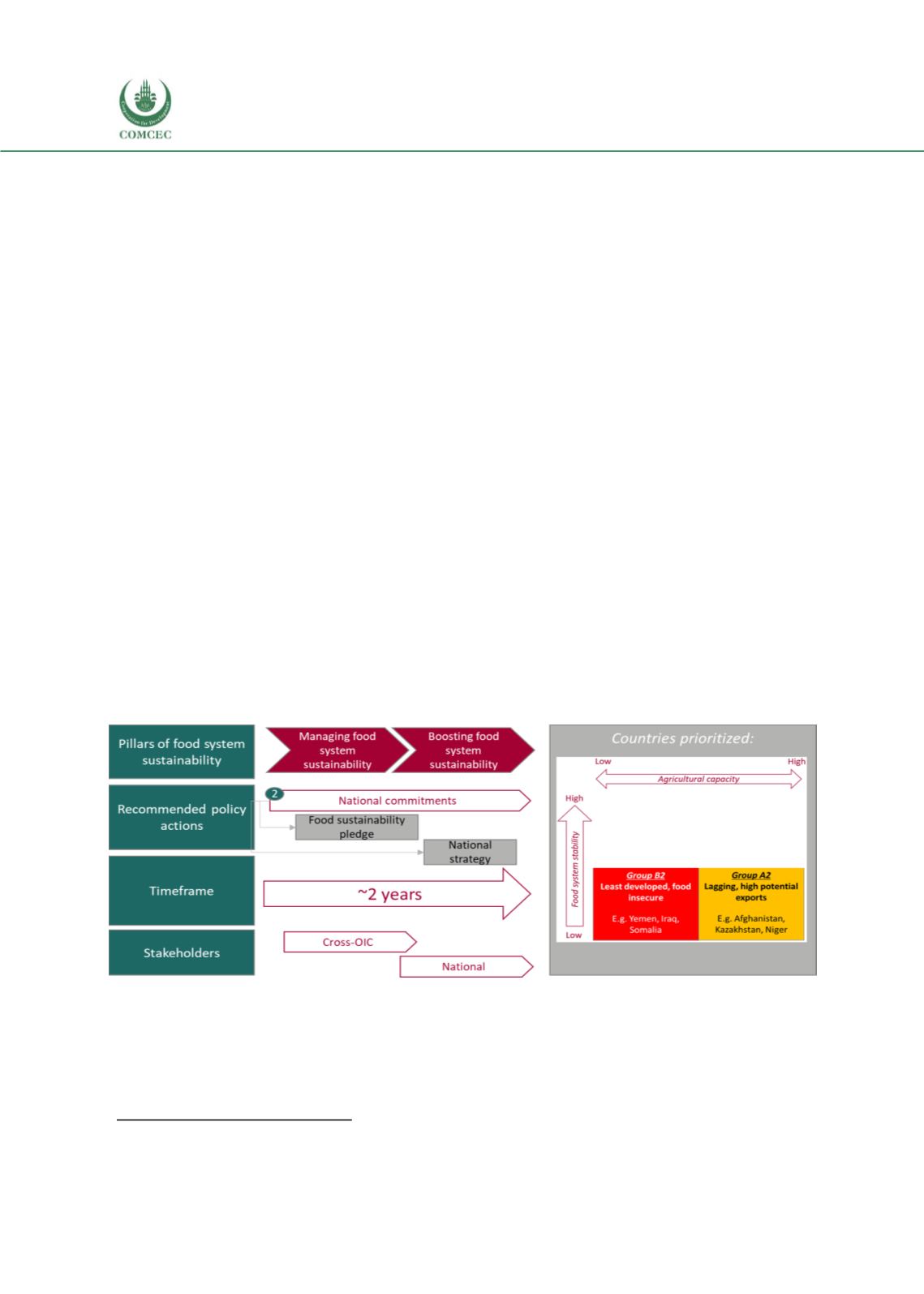

Increasing the Resilience of the Food Systems
In Islamic States in Face of Future Food Crises
146
Consistent, comparable KPIs are recommended for monitoring food system stability, led
at the OIC-level, with cross-OIC efforts to develop early warning systems
Across the OIC, comparablemetrics are encouraged to monitor the ongoing risks of food crises.
Such measurements can be applied across all OIC countries, but with priority given to the lease
developed and most vulnerable member countries.
It is clear from the case studies in this report that there is no consistent approach to monitoring
activities for food security across the OIC members. Monitoring is an activity that has been
extensively carried by the leaders in food security, notably the U.S. and Ireland, and needs to be
better understood at an OIC-level. A new SESRIC-led study could be prepared, for the benefit of
OIC governments, that looks at how monitoring is conducted, which bodies conduct them, and
for what purpose. A selection of OIC countries from across the four segments identified in this
study can be benchmarked against the KPIs. Such a study may also involve collaboration with
the UNFAO and representatives of leaders in the food security, including USAID.
The EWEA (Early Warning – Early Action)
581
pilot program undertaken by the UNFAO in a few
countries considered vulnerable tonatural disasters and food insecurity, twoof which were OIC
states Somalia and Sudan, is an important case study in establishing OIC-widemonitoring, and
can be a high priority for B2 and B1 countries to adopt and implement.
6.3.
National Commitments
Based on robust, country-level data, national commitments to enhancing food system stability
could be made within the framework provided by COMCEC and supplemented by detailed
national strategies to accomplish commitments made within a reasonable timeframe.
Figure 40: Roadmap for Making Realistic National Commitments on Food System
Sustainability
Source: DinarStandard Analysis
581
“Acting early to prevent food crises in Sudan and Madagascar.” FAO.
http://www.fao.org/in-action/prevent-food-crises-sudan-madagascar/en/
















